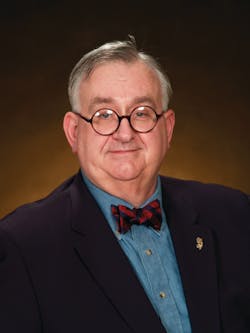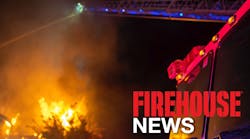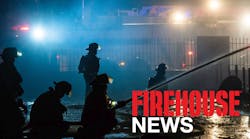It is time to take another look at a critical part of the equation which will lead to success in your fire department organization. People tend to hang their hat on the importance of communication as an organizational priority. Yes, it is critical but there is another element which requires a great deal of your time. I suggest that you ignore this element at your own peril.
As important as communications is to the success of you agency, so too is the decision making process. Unless you and your people can make decisions, nothing will ever be accomplished. You will never reach your destination of organizational success, because you will never make the decision to start the trip. It is critical to remember that communications serve as the basis for effective decision making. Solid, correct information, transmitted correctly, always precedes a good decision.
Decision-making has been defined as the choice of an action in response to a problem; based upon a set of circumstances. We have found that there are two basic types of decisions, the programmed or routine decision and the non-programmed or novel response to specific situational requirements.
It is essential that programmed decisions be covered by rules, regulations and standard operating procedures (SOPs). These routine decisions can easily be delegated. You would not want the fire chief to decide when to use a 2-inch attack line or a basic deck gun stream on the first-due engine company. That is a decision best made by the officer of that unit.
Non-programmed decisions require more effort and generally need the actions of such persons as chiefs, trustees, commissioners or a vote of the organization, depending upon your organizational requirements. This is because they are substantial matters involving a lot of thought, a lot of money or both.
Three things help you to determine whether a decision is routine or non-routine:
- Nature
- Frequency
- Degree of Certainty
A good example of the difference between the two comes from the following example:
- When to lay a water supply hoseline (routine)
- Buying a new pumper to carry the hose (commissioners/committee/chief/voters)
Decisions are a means to an end and not an end in and of themselves. Some people get so carried away with the mechanics of making a decision that they never make a meaningful decision. The practice what has been called paralysis by analysis. Avoid that one at all costs.
Let us take a look at one of the commonly accepted problem solving models.
Step 1. Analyze data - This allows you to identify problems
Step 2. Develop alternatives - There are many ways to do a task
Step 3. Evaluate alternatives - Which meets your specific needs
Step 4. Choose the best one for your situation. But choose one!
Step 5. Do it!
Step 6. Evaluate the feedback - Make adjustments as needed
The best solutions come to people who have taken the time to become familiar with the goals and objectives of the organization. These folks will know the direction in which they are headed. They will know the reasons why they are traveling in that direction. And they will be able to work toward arriving at the desired objective in a timely fashion.
Factors Influencing Decisions
- Value judgments: Decisions cannot be divorced from the people making the decisions, who they are, how they think and what they think about are all important.
- Personality differences: Different people think along different lines of thought.
- Acceptable levels of risk: How much are you willing to risk on a given problem? Different people will tolerate the same risk in different ways.
- Post-decision blues: "Did I make the right decision?" he cried.
Decision-making is a skill that can be learned and mastered. However you must devote a great deal of time and study to perfecting these skills. Never presume that you are an expert. Constantly strive to improve your skills. Here is a case where practice might not make perfect, but it will make you better.
HARRY R. CARTER, Ph.D., CFO, MIFireE, a Firehouse.com Contributing Editor, is a municipal fire protection consultant based in Adelphia, NJ. Dr. Carter retired from the Newark, NJ, Fire Department and is a past chief and active life member of the Adelphia Fire Company. Follow Harry on his "A View From my Front Porch" blog. You can reach Harry by e-mail at [email protected].






